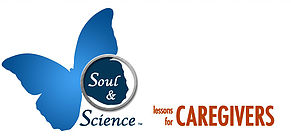BOOKS

A Better Way of Dying: How to Make the Best Choices at the End of Life
– Jeanne Fitzpatrick, Eileen M. Fitzpatrick, 2010
 The fail-safe plan for ensuring one’s final wishes are respected
The fail-safe plan for ensuring one’s final wishes are respected
Advanced directives and living wills have improved our ability to dictate end-of-life care, but even these cannot guarantee that we will be allowed the dignity of a natural death. Designed by two sisters-one a doctor, one a lawyer-and drawing on their decades of experience, the five-step Compassion Protocol outlined in A Better Way of Dying offers a simple and effective framework for leaving caretakers concrete, unambiguous, and legally binding instructions about your wishes for your last days. Meant for people in every walk of life-from the elderly, to those in the early stages of mentally degenerative diseases like Alzheimer’s, to healthy young people planning for an unpredictable future-this book creates space for a discussion we all must have if we wish to ensure comfort and control at the end of our lives.
Final Gifts: Understanding the Special Awareness, Needs, and Communications of the Dying
–Maggie Callanan, Patricia Kelley, 2012
 In this moving and compassionate classic—now updated with new material from the authors—hospice nurses Maggie Callanan and Patricia Kelley share their intimate experiences with patients at the end of life, drawn from more than twenty years’ experience tending the terminally ill.
In this moving and compassionate classic—now updated with new material from the authors—hospice nurses Maggie Callanan and Patricia Kelley share their intimate experiences with patients at the end of life, drawn from more than twenty years’ experience tending the terminally ill.
Through their stories we come to appreciate the near-miraculous ways in which the dying communicate their needs, reveal their feelings, and even choreograph their own final moments; we also discover the gifts—of wisdom, faith, and love—that the dying leave for the living to share.
Filled with practical advice on responding to the requests of the dying and helping them prepare emotionally and spiritually for death, Final Gifts shows how we can help the dying person live fully to the very end.
Planning for Uncertainty: Living Wills and Other Advance Directives for You and Your Family
–David John Doukas MD, William Reichel MD, 2007
 It won’t happen to me.
It won’t happen to me.
I’m too busy to worry about a living will.
My family will know what to do.
No one wants to plan for death or incapacitating illness. But, as the emotional legal battle in the Terri Schiavo case made all too clear, people of all ages need to document and communicate clear decisions about the final details of their lives while they are healthy and have time to fully consider their own values and preferences.
Here, Drs. David Doukas and William Reichel help individuals make decisions and communicate their wishes to health care providers and family members and other loved ones.
Drs. Doukas and Reichel use a question-and-answer format to guide readers through the process―emphasizing the crucial connection between values and treatment preferences. They explain advance directives and the health care decision-making process, including the values history, family covenants, proxies, and proxy negation. The appendix includes resources and Web links for learning about advance directive requirements and obtaining legal forms in all fifty states.
This practical guide helps people navigate the important but often intimidating process of thinking about, and planning for, an uncertain future.
To Die Well: Your Right to Comfort, Calm, and Choice in the Last Days of Life
– Sidney Wanzer, Joseph Glenmullen, 2008

 Knowing our rights to refuse treatment, and ways to bring death earlier if pain or distress cannot be alleviated, will spare us the frightening helplessness that can rob our last days of meaning and personal connection. Drs. Wanzer and Glenmullen clarify what patients should insist of their doctors, including the right to enough pain medication even if it shortens life. Everyone needs their wise and comforting advice.
Knowing our rights to refuse treatment, and ways to bring death earlier if pain or distress cannot be alleviated, will spare us the frightening helplessness that can rob our last days of meaning and personal connection. Drs. Wanzer and Glenmullen clarify what patients should insist of their doctors, including the right to enough pain medication even if it shortens life. Everyone needs their wise and comforting advice.